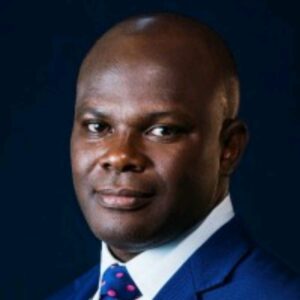Soji Akinyele: Buhari Administration Had No Room to Breathe Amid Crises

Economist and policy expert Soji Akinyele has stated that the Buhari administration operated under deeply constrained economic conditions, leaving little room for structural reforms or transformative policies.
Speaking on the economic affairs program Talknomics with Ugodre, Akinyele provided a comparative analysis of Nigeria’s recent leadership, highlighting the contrasting environments between the Buhari and Tinubu administrations.
“The Buhari administration never had room to breathe,” Akinyele said during the interview. “They were constantly responding to crises recession, pandemic, and global shocks.”
According to Akinyele, the 2016 recession and the economic fallout of the COVID-19 pandemic forced the Buhari government to divert attention from long-term economic strategies toward emergency social safety measures.
These reactive policies, while necessary for immediate stability, limited the scope for implementing structural reforms such as subsidy reform or exchange rate liberalisation.
In contrast, Akinyele described President Tinubu’s administration as operating in a “more stable, albeit fragile,” economic environment. This relative stability has enabled the implementation of bold reforms, including the removal of fuel subsidies and liberalisation of the naira. Despite both administrations emerging from the same political lineage, Akinyele noted that they differ sharply in terms of economic latitude and urgency.
On Nigeria’s aspiration to reach a trillion-dollar GDP, Akinyele struck a balance between optimism and realism. He emphasised the growing role of service-based and technology-driven sectors in propelling economic growth.
“What we haven’t gained in manufacturing, we’re gaining in fintech, edtech, agritech, and other tech-driven services,” he said.
He also called for improved coordination among government agencies to better capture the scale of the informal economy and accurately reflect the contributions of Nigerian tech firms, many of which are domiciled offshore.
“Policy continuity is key. We must define economic formality on our own terms while aligning with global benchmarks,” Akinyele added.
As Nigeria navigates complex domestic challenges and volatile global markets, experts like Akinyele continue to stress the need for grounded, data-driven policy reforms that reflect both local realities and global aspirations.







